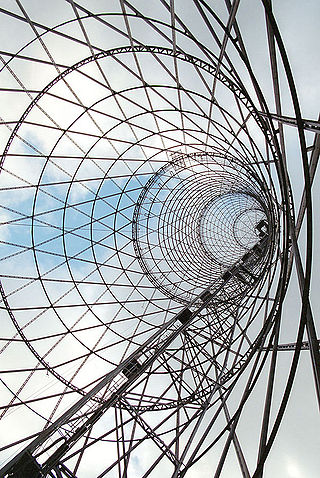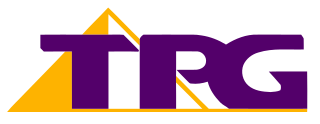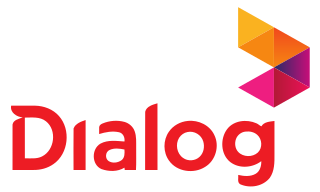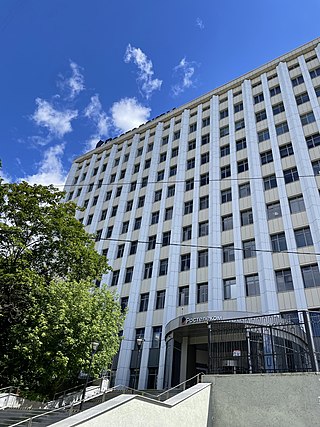Telecommunications in Belarus involves the availability and use of electronic devices and services, such as the telephone, television, radio or computer, for the purpose of communication.

The telecommunications in Russia has undergone significant changes since the 1980s, radio was a major new technology in the 1920s, when the Communists had recently come to power. Soviet authorities realized that the "ham" operator was highly individualistic and encouraged private initiative – too much so for the totalitarian regime. Criminal penalties were imposed but the working solution was to avoid broadcasting over the air. Instead radio programs were transmitted by copper wire, using a hub and spoke system, to loudspeakers in approved listening stations, such as the "Red" corner of a factory. This resulted in thousands of companies licensed to offer communication services today. Due to the enormous size of the country Russia today, the country leads in the number of TV broadcast stations and repeaters. The foundation for liberalization of broadcasting was laid by the decree signed by the President of the USSR in 1990. Telecommunication is mainly regulated through the Federal Law "On Communications" and the Federal Law "On Mass Media"
In South Korea, telecommunications services improved dramatically in the 1980s with the assistance of foreign partners and as a result of the development of the electronics industry. The number of telephones in use in 1987 reached 9.2 million, a considerable increase from 1980, when there were 2.8 million subscribers.
Telecommunications in Slovakia includes fixed and mobile telephones, radio, television, and the Internet.

TPG is an Australian internet service provider that specialises in consumer and business internet services as well as mobile telephone services. As of August 2015, TPG is the second-largest internet service provider in Australia and is the largest mobile virtual network operator. As such, it has over 671,000 ADSL2+ subscribers, 358,000 landline subscribers and 360,000 mobile subscribers, and owns the second-largest ADSL2+ network in Australia, consisting of 391 ADSL2+ DSLAMs. It also operates in New Zealand.
Telkom SA SOC Limited is a South African wireline and wireless telecommunications provider, operating in more than 38 countries across the African continent. Telkom is majority state-owned (55.3%) with the South African government owning 40.5% of Telkom, while another 14.8% is owned by another state-owned company - the Public Investment Corporation (PIC), which is closely linked to the South African government.

MTS, headquartered in Moscow, is the largest mobile network operator in Russia, operating on GSM, UMTS and LTE standards. Apart from cellular network, the company also offers local telephone service, broadband, mobile television, cable television, satellite television and digital television.

Kyivstar is a Ukrainian telecommunications company, providing communication services and data transmission based on a broad range of fixed and mobile technologies, including 4G (LTE) services, in Ukraine.

Dialog Axiata PLC, is one of Sri Lanka's largest telecommunications service providers, and the country's largest mobile network operator with over 17 million subscribers which amounts to 57% of the Sri Lankan mobile market. Dialog is a subsidiary of Axiata Group Berhad which owns 73.75% controlling stake of the company, while Bharti Airtel owns 10.36%.

OJSC Dalsvyaz is a telecommunications service provider active in the Russian Far East. It is part of Svyazinvest Holdings, which is Russia's largest telecommunications holding company, and which owns many large regional telecommunications service providers in Russia.

Rostelecom (Ростелеком) is Russia’s largest provider of digital services for a wide variety of consumers, households, private businesses, government and municipal authorities, and other telecom providers. Rostelecom interconnects all local public operators’ networks into a single national network for long-distance service. In other words, if one makes a long-distance call or originates Internet contact to or from Russia, it is likely that Rostelecom is providing part of the service. The company's stock trades primarily on the Moscow Exchange.
VolgaTelecom was a Russian telecommunications company formed in 2002 as a result of a reorganization of the Svyaz'invest Company in Moscow which consolidated 72 regional service providers into seven large interregional companies.
North West Telecom is part of Rostelecom, providing telecommunications service to northwest Russia.

Internet in Russia, or Russian Internet, and sometimes Runet, is the part of the Internet that is related to Russia. As of 2015, Internet access in Russia is available to businesses and home users in various forms, including dial-up, cable, DSL, FTTH, mobile, wireless and satellite.
Internet in Australia first became available on a permanent basis to universities in Australia in May 1989, via AARNet. Pegasus Networks was Australia's first public Internet provider in June 1989. The first commercial dial-up Internet Service Provider (ISP) appeared in capital cities soon after, and by the mid-1990s, almost the entire country had a range of choices of dial-up ISPs. Today, Internet access is available through a range of technologies, i.e. hybrid fibre coaxial cable, digital subscriber line (DSL), Integrated Services Digital Network (ISDN) and satellite Internet. In July 2009, the federal government, in partnership with the industrial sector, began rolling out a nationwide fibre-to-the-premises (FTTP) and improved fixed wireless and satellite access through the National Broadband Network. Subsequently, the roll out was downgraded to a Multi-Technology Mix on the promise of it being less expensive and with earlier completion. In October 2020, the federal government announced an upgrade by 2023 of NBN fibre-to-the-node (FTTN) services to FTTP for 2 million households, at a cost of A$3.5 billion.
Telecommunications in Taiwan comprise the following communication media, deployed in the Taiwan Area of the Republic of China and regulated by the National Communications Commission of the Executive Yuan.

Broadband is a term normally considered to be synonymous with a high-speed connection to the internet. Suitability for certain applications, or technically a certain quality of service, is often assumed. For instance, low round trip delay would normally be assumed to be well under 150ms and suitable for Voice over IP, online gaming, financial trading especially arbitrage, virtual private networks and other latency-sensitive applications. This would rule out satellite Internet as inherently high-latency. In some applications, utility-grade reliability or security are often also assumed or defined as requirements. There is no single definition of broadband and official plans may refer to any or none of these criteria.

Mobile phone industry in Russia is a trade industry of cell phone devices and mobile network services in Russia. Since the collapse of the Soviet Union in the 1991 it had seen a great expansion over the last decades becoming one of the largest in the world. In terms of number of smartphone users, Russia is the 4th biggest smartphone market in the world sitting behind only China, India, and USA.
TransTelecom is a major telecommunications company in Russia that owns one of the largest networks in the world of fiber optical cables. The company is a full subsidiary of Russian national railway operator, Russian Railways. TTK has been actively connected broadband users in the retail market since early 2011. Since then, their number has grown by almost 10 times, and in 2014 the company intends to go abroad to 2 million users. The company's strategy stipulates that by the end of 2015 it will serve 2.3 million broadband subscribers. Community market, which the company aims at are settlements with less than 100,000 people, and they accounted for almost 40% of all connections.

t2 is a Russian telecommunications company originally founded by Swedish Tele2. It has been operating since 2003. Since 2020, Tele2 Russia is a wholly owned subsidiary of Rostelecom. At year-end 2019, Tele2 Russia provides wireless services to more than 44.6 million subscribers.











